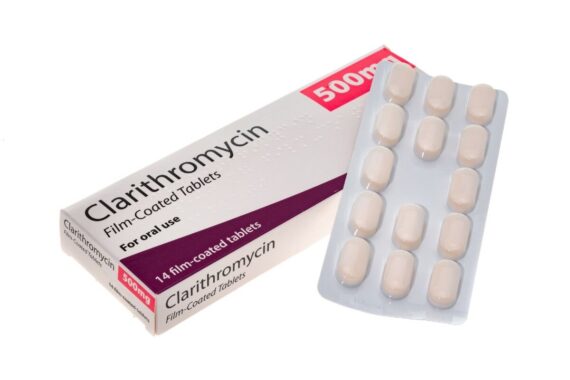The Government has reactivated pharmacy powers to swap doses of clarithromycin due to ‘significant ongoing disruption’ to supplies.
Pharmacies had been warning they were having to turn patients away and ask for new prescriptions from GPs amid increased demand for the antibiotic due to rising rates of whooping cough.
Leyla Hannbeck, the chief executive of the Independent Pharmacies Association, had called at the weekend for the rule change to allow pharmacists to make substitutions for alternative antibiotics so that children could start treatment immediately.
‘We’ve seen one of the key antibiotics for treating whooping cough, clarithromycin, become unavailable in some areas,’ said Hannbeck. ‘We’re having to turn patients away and send them back to their GP to get their prescription changed,’ she said.
In response, the Department of Health and Social Care said it was not aware of any supply issues for antibiotics for whooping cough.
But a notification on the 22 May said Ministers have authorised the (DHSC) to reactivate two serious shortage protocols for clarithromycin 125mg/5ml and 250mg/5ml oral suspension.
Pharmacists are able to substitute half doses of a higher strength or issue tablets instead without a GP having to change the prescription.
Under the SSP:
– for every 5ml of clarithromycin 125mg/5ml oral suspension, 2.5ml of clarithromycin 250mg/5ml oral suspension must be supplied
– for every 5ml of clarithromycin 250mg/5ml oral suspension, one clarithromycin 250mg tablet must be supplied
The powers will remain in place until 21 June, the notification said.
Earlier this month, the UK Health Security Agency reported that five babies had died from whooping cough in the first three months of this year.
In March there were 1,319 confirmed cases of pertussis up from 918 in February and 556 in January with highest rates in babies under the age of three.
It comes after repeated warnings from public health officials about falling uptake of maternal pertussis vaccination.
The latest rise comes after a post-pandemic period of low levels of spread with the last peak year being 2016.
Uptake in pregnant women has dropped from over 70% in September 2017 to around 58% in September 2023.
UKHSA said the calculated maternal vaccine effectiveness against infant death has been updated to include the most recent deaths and remains very high at around 92%.
There has also been a small drop in the number of children who have completed the 6-in-1 vaccination which includes pertussis from 96.3% in March 2014 to 92.9% by September 2023, figures show.
A report from Community Pharmacy England also this month said daily battles with medicines shortages were putting patients are risk and causing extra workload.









‘Putting patients at risk and causing extra workload’ for GPs, (not just pharmacies), let’s be precise about this. Also, it’s not the only matter that puts this extra workload to GPs. (Is it any more ‘managed’ by dispensing GP practices? I don’t know). In addition, why does it take so long for this issue, medicines shortages, which has been so prevalent for many years, under the Tory government it would seem, to become, at long last, worthy of a report by CPE. 14 years? On 4 July, at the General Election, make sure you use your vote to vote Labour, not just for the sake of whooping cough patients, although this is extremely important, but also it’s important for GPs, pharmacists, the NHS and all the population.
Also, to governments and NHSE: don’t just ignore or shelve reports but act on them in a timely and active manner: and much more speedily; NHSE and Health Secretary, V Atkins, need to pressure government for more funding for NHS to get things properly done if necessary, so we do not expect daily medicine shortages going forward, but too late now: ‘vote them out’ is the key thing doctors and pharmacists need to do (to ensure a necessary change after 14 years).
Antibiotics dont treat Pertussis, we were always taught they are used to reduce the spread of the infection